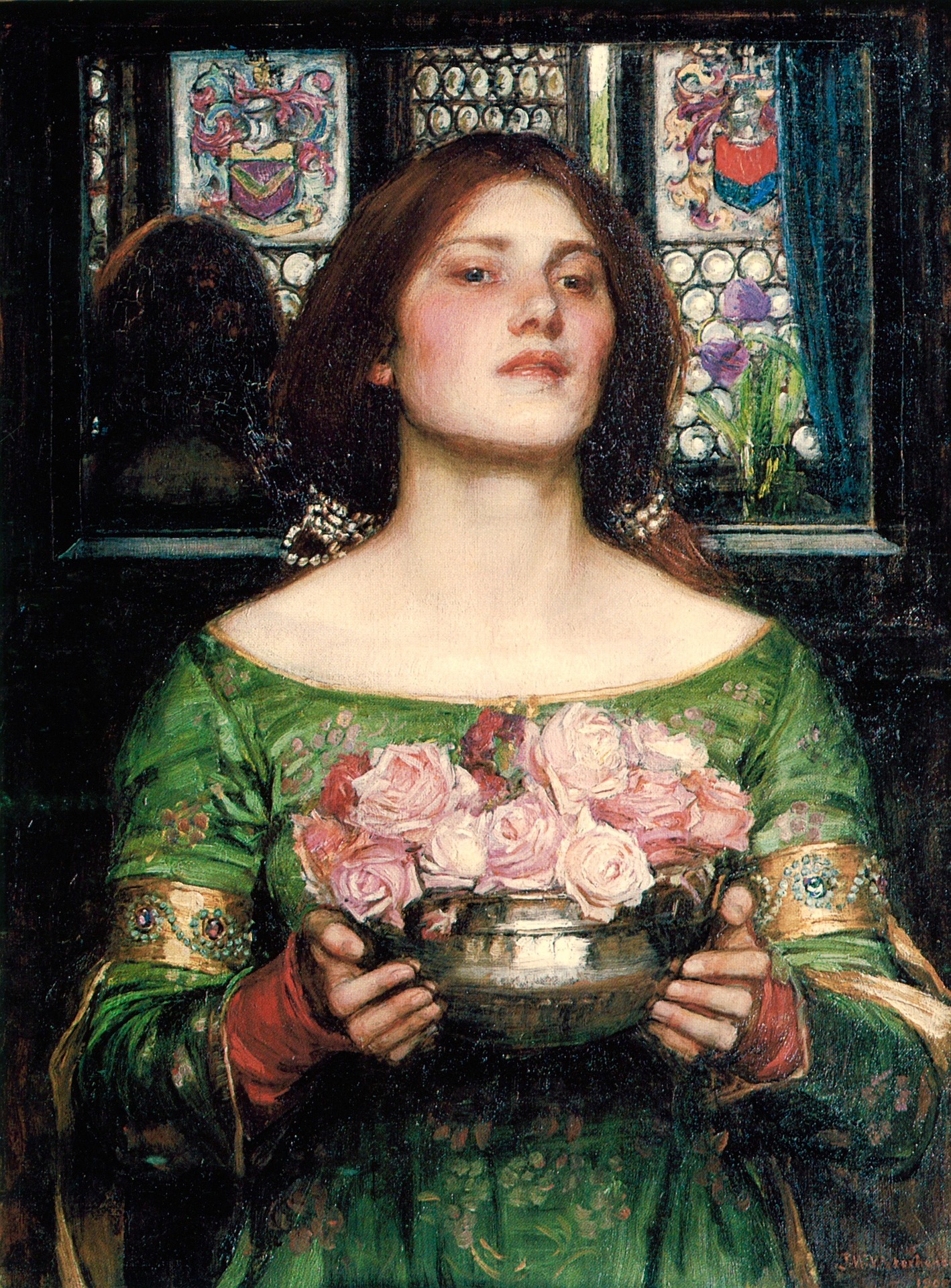
Attributed to John Taylor.
Public domain, via Wikimedia Commons
It goes without saying (it is obvious) today’s literary author is a well-known figure, someone whom you have undoubtedly heard of before: William Shakespeare.
You might have heard about his longest play, Hamlet. 📜
Additionally, you may well recognise the famous quote, ‘To be, or not to be – that is the question’, derived from this particular drama.
However, you might not be familiar with the plot (storyline) or some of the most unforgettable lines from this masterpiece.
✍️ So in this Lesson we will read 10 of the play’s most important quotes. We will also describe the main actions and sentences from Hamlet in simpler and less advanced language.
Find the key sign 🗝️ that shows the quotations rephrased in modern English.
(Note: this Lesson is best suited to Intermediate and Advanced English learners).
As always, I want to help you enjoy some of our richest literature!
Its language shouldn’t be a problem; rather (instead), I should be able to use it to illustrate some of our best vocabulary and lexis!
…
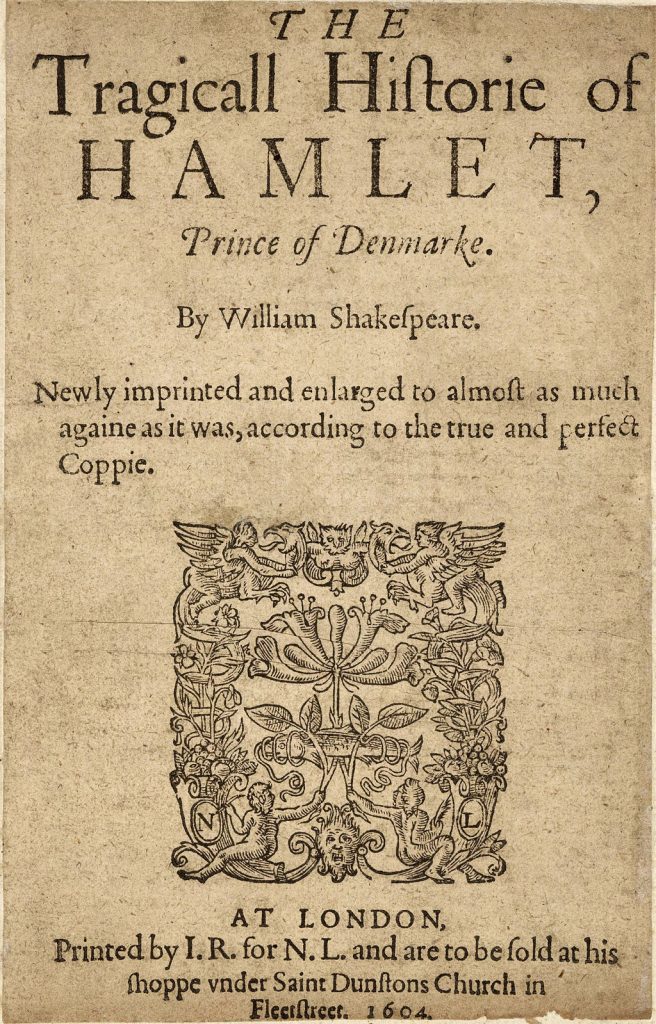
Public domain, via Wikimedia Commons
🪶 QUOTE #1
‘A little more than kin, and less than kind.’
– The Tragedy of Hamlet, Prince of Denmark (1.2.63)
🍂
kin: extended family, a person’s relatives.
less than kind: not kind enough, not kind at all, unkind
🍃
This is Hamlet’s very first speech in the play.
Hamlet is the Prince of Denmark. The king, his father, has recently passed away. Claudius, the brother of the late (recently deceased) king, has become the new king of Denmark and has married Queen Gertrude, Prince Hamlet’s mother.
The play opens with Hamlet’s sorrow and unease (not being at ease, at peace, or comfortable) about the current circumstances: he is hurt by his father’s passing and angry that his mother married his uncle so quickly.
In a confrontation with his uncle, King Claudius, Hamlet utters the phrase, 🗝️ “A little more than kin, and less than kind,” expressing that Claudius is not truly a loving father figure and doesn’t fulfil the kindness one might expect from a new father in his position.
The beauty of these words is partly due to their alliteration. 📝 What exactly is alliteration? It occurs when a few words within a sentence start with the same letter or sound. The letter ‘k’ in the words ‘kin’ and ‘kind’ is used here. By the way, the vowel in ‘kin’ and ‘pin’ sound similar.
In English, ‘kindred‘ is a word that is similar to ‘kin’ and implies (suggests) a person’s family and relations. Although it’s not commonly used in English, this word is a familiar term for native English speakers, making it a valuable addition to your vocabulary!
…
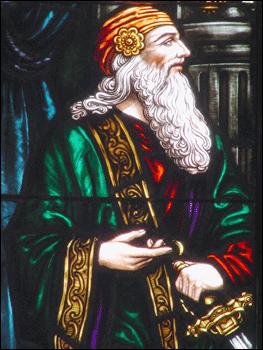
Public domain, via Wikimedia Commons
🪶 QUOTE #2
‘This above all: to thine own self be true,
And it must follow, as the night the day,
Thou canst not then be false to any man.’
– The Tragedy of Hamlet, Prince of Denmark (1.3.564-566)
The speaker of this speech is Polonius, a lord in king Claudius’ court who always tries to please him. In addition, he has a son named Laertes and a daughter named Ophelia.
Hamlet and Ophelia share a romantic affection for each other, and Polonius, for the most part, finds contentment in their relationship. However, Laertes is worried about his sister, in case she becomes susceptible (weak, vulnerable, at risk of being taken advantage of) to Hamlet’s advances and compromises her respectability (honour). Before leaving for (leaving to go to) Paris to finish his studies, Laertes warns his sister to be very careful with her heart’s deepest feelings.
Now that their father, Polonius, has entered the room, he advises Laertes in turn to be prudent (careful, wise) in Paris, ensuring he avoids any imprudent actions that could jeopardise both his honour and safety. The father’s words to his son are as quoted above.
🍂
This above all: this is the most important thing
To thine own self be true: be true to your own self, to your own values, your own heart
And it must follow, as the night the day: and after behaving like this, just like night follows after day …
Thou canst not then be false to any man: you will not then be false or deceptive or untrue to any person (after you have been true to yourself).
🗝️ In other words: being honest and true to yourself is the most important thing. By doing so, you will not deceive or be untruthful to anyone else.
🍃
…
🪶 QUOTE #3
‘Doubt thou the stars are fire;
Doubt that the sun doth move;
Doubt truth to be a liar;
But never doubt I love.’
– The Tragedy of Hamlet, Prince of Denmark (2.2.1212-1215)
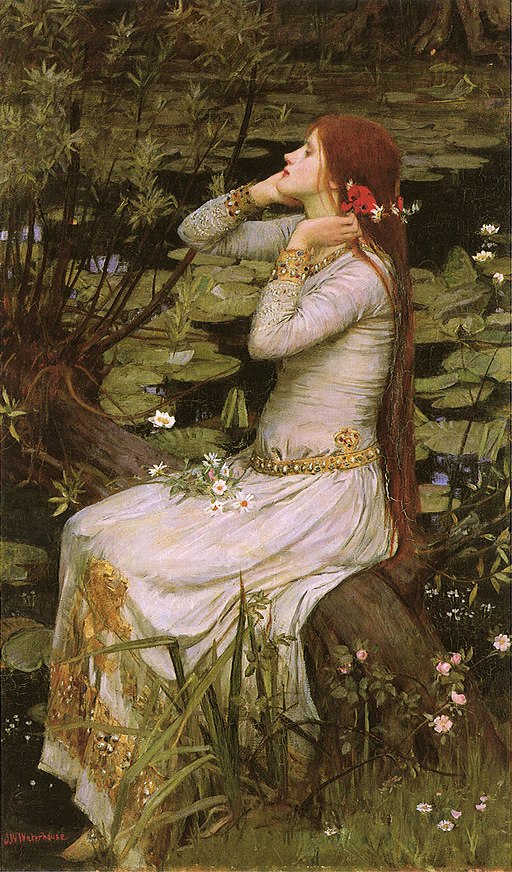
Artist: John William Waterhouse
Public domain, via Wikimedia Commons
🍂
Doubt: feel uncertain about; be afraid of something
This quote is one of the easiest of all to understand if you rewrite it in modern English:
🗝️ ‘You can doubt [Shakespeare used the imperative command here – ‘Doubt …’] that the stars are made of fire;
You can doubt that the sun moves;
You can doubt truth and think it is a liar;
But never doubt that I love [you].’
🍃
One might exclaim: how romantic these lines are! Yes, these are the exact words from a letter that Hamlet wrote to Ophelia when they were still courting (to be romantically involved with someone, with the intention of getting married).
In the play, Polonius has asked Ophelia to give him any letters or special tokens that Hamlet might have given her. 💌
This is because Hamlet is starting to act very strangely, appearing like a madman (a person who has gone insane), as both Polonius and the king have noticed. The king fears that Hamlet suspects (thinks the king guilty of) him of murdering his brother, the former king – this is true, since Hamlet has seen his father’s ghost who told him that this is exactly what happened.
On the other hand, Polonius believes that Hamlet is experiencing madness (the state of being crazy, having lost his mind) because of his deep love for Ophelia. He tries to convince the king that this is the cause of Hamlet’s new madness by producing (showing) this letter. 💔
…
🪶 QUOTE #4
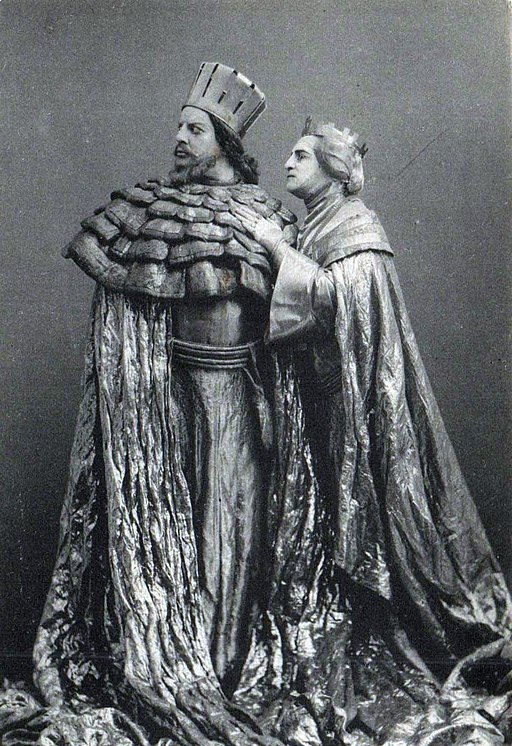
Actor: Massalitinov Knipper (1912)
Image Credit: K.A. Fisher, Public domain, via Wikimedia Commons
‘Though this be madness, yet there is method in’t.’
– The Tragedy of Hamlet, Prince of Denmark (2.2.1307)
🍃
🗝️ ‘Even though this is madness, yet there is a kind of pattern or sense [method] in it.’
These are the words of Polonius when he observes Hamlet’s crazy behaviour, which no one can entirely comprehend. He observes that Hamlet appears to be concentrating on something, though no one seems to know for certain what that is …
A question for you: Do you think Hamlet is aware of his own madness? ⚡
…
🪶 QUOTE #5
‘O what a rogue and peasant slave am I!’
– The Tragedy of Hamlet, Prince of Denmark (2.2.1622)
🍂
rogue: a dishonest person, without principles or morals
peasant: a person who is poor and of low social status, usually living off a very small piece of land or having only basic housing
slave: a person who is the legal property of someone else and is forced to obey them
🗝️ O what a dishonest and base slave I am [that I do what other people want me to do because I am too afraid to act for myself, on my own convictions]!
🍃
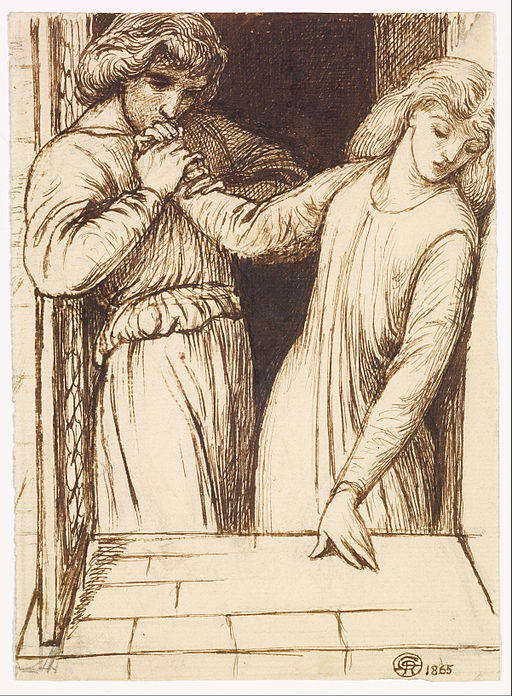
Artist: Dante Gabriel Rossetti
Public domain, via Wikimedia Commons
The essence of Hamlet’s soliloquy (solitary speech; thoughts that are spoken aloud to oneself) occurs after he pretends to be mad in front of the king and Polonius.
Hamlet is torn between (very distressed and tense when having to choose between) obeying his father’s ghost and killing Claudius, but also not wanting to kill him. ⚔️
Hamlet is angry with himself for lacking the courage (doesn’t have the courage, the bravery, the strength) to proceed with killing Claudius, even though he believes he should. He compares himself to a ‘slave’ because he acts according to others’ wishes and expectations, not his own.
…
🪶 QUOTE #6
The play’s the thing
Wherein I’ll catch the conscience of the King.’
– The Tragedy of Hamlet, Prince of Denmark (2.2.598-600)
🍂
conscience: a person’s moral sense of right and wrong, which acts as a guide to one’s behaviour.
🍃
At this juncture, Hamlet makes a pivotal discovery (something influential, life-changing): by arranging a play (having a play performed), he can resolve his dilemma (his internal struggle, as mentioned in the above quote).
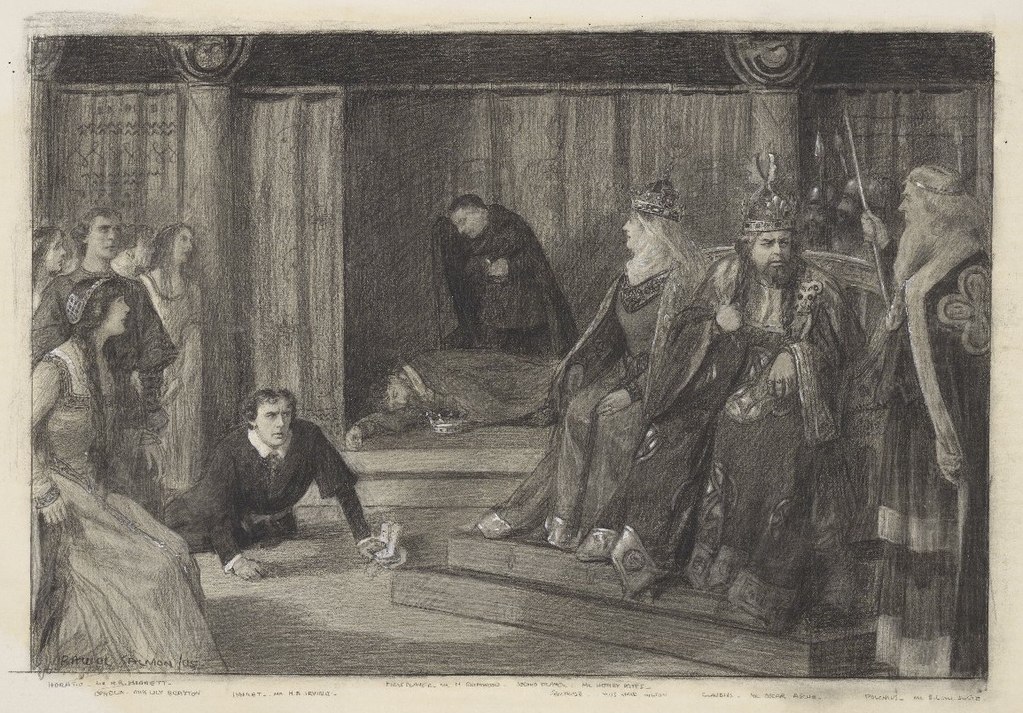
Artist: Balliol Salmon (1905).
Folger Shakespeare Library,
Public domain, via Wikimedia Commons
The reason it is important is this: if Hamlet stages a drama in which a king is murdered by his brother and marries his widow – just like Claudius has done in real life – Hamlet can determine (discover and decide) his guilt just by looking at Claudius’ reaction.
🎭 This speech captures Hamlet’s excitement about the play becoming a test to prove Claudius’ guilt. If Claudius is indeed guilty, Hamlet will then be certain that he must kill him; otherwise, he realises that his vision of his father’s ghost was just a dream.
🗝️ ‘The play is just the thing I need
In which I will catch signs of the king’s conscience (his awareness of guilt) [if there are any signs to notice].’
👉🏻 Pay attention to Shakespeare’s use of rhyme here: ‘the thing’ rhymes with ‘the King’. It has its own special rhythm to make it memorable!
…
🪶 QUOTE #7
‘To be, or not to be – that is the question.’
– The Tragedy of Hamlet, Prince of Denmark (3.1.56)
🍃
This is the most renowned phrase in Hamlet. In fact, the entire speech or soliloquy that comes after this one is worth perusing in its authentic English form at least once.
For now, let’s focus solely on this line. It expresses the recurring (repeating) doubts and fears that Hamlet frequently encounters.
Notice how the verb ‘to be’ in this instance actually means ‘to exist’, ‘to live’. Hamlet questions whether it’s better to be (meaning to ‘keep existing’) or not to be (meaning ‘not to keep existing – to die by suicide’).
This is the biggest dilemma for Hamlet. In fact, he uses the definite article ‘the’ here just to make that point: ‘that is the question’.
The speech that follows this line (unfortunately, too long to quote in full here) describes what could happen: he could give in (surrender, yield himself) to the temptation to die in ‘sleep’ or he could ‘take arms against (fight) a sea of troubles, and by opposing [them] end them’.
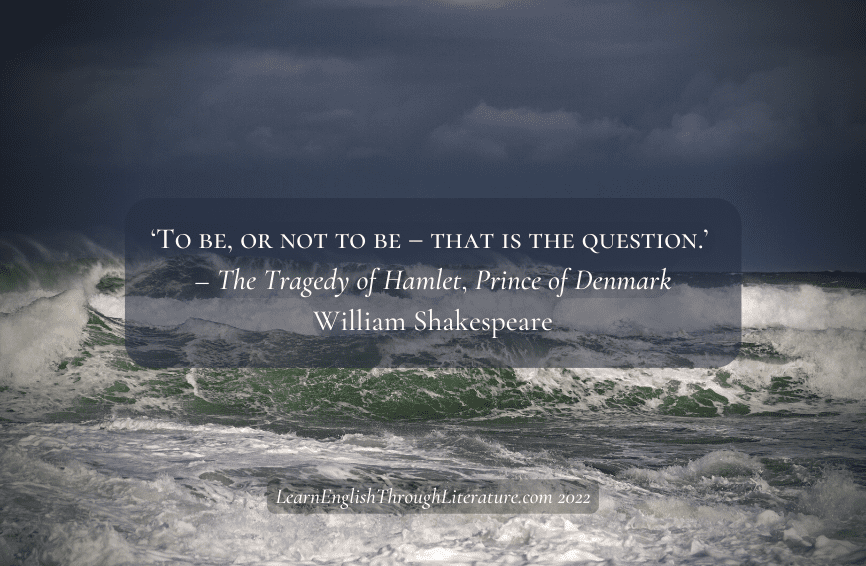
This is why we can say that this speech is timeless (it is relevant to people in all generations, it never gets old). We can relate to Hamlet’s struggle between 1) feeling overwhelmed and powerless and wanting to give up in a difficult situation and 2) recognising that he could confront (fight against) ‘a sea of troubles’ and strive (make the strongest efforts) to overcome them, even if this would be very difficult and effortful.
What do you think Hamlet will do in the end? 💭
…
🪶 QUOTE #8
‘Thus conscience does make cowards of us all …’
– The Tragedy of Hamlet, Prince of Denmark (3.1.1776)
🗝️ In this way, conscience (or our temptation to think things over and over, and worry whether something is right and for the best) can make us too fearful to be proactive and effective.
🍂
thus: so, in this way
coward: someone who is excessively fearful and doesn’t act courageously
🍃
This line is from the same speech as mentioned earlier. He is saying that our conscience can work against us, and defeat us. It can ultimately (in the end) ‘make cowards’ of us, causing us to become more fearful and less effective. It emphasises the importance of maintaining morality while retaining courage (remaining a brave person). 🛡️ What a universal truth!
…
🪶 QUOTE #9
‘There’s a special providence in the fall of a sparrow.
If it be now, ‘tis not to come.
If it be not to come, it will be now.
If it be not now, yet it will come.
The readiness is all.’
– The Tragedy of Hamlet, Prince of Denmark (5.2.167-70)
🍂
providence: the protective care of God, or of nature, as a spiritual power (sometimes spelled with a capital ‘P’ to indicate God).
readiness: the fact of being prepared, eager, and ready to start acting before something happens.
🍃
At this pint, you may have an idea where the Hamlet storyline is headed.
After all, it is a tragedy. 🖤
Hamlet manages to kill three people directly (Polonius, Claudius, and Laertes) through a series of complicated events, while also indirectly causing deaths of four others (Ophelia, his mother, and his two friends).
He endures all of these deaths and bemoans (seriously weeps for, grieves for) Ophelia above all who, following her descent into madness, took her own life. 💔 This tragic turn of events occurred because she mistakenly believed that Hamlet had killed her father on purpose (however, in reality he had not intended to), and also that he no longer loved her (which was not the case either).
In a desperate (hopeless) final confrontation, Laertes and Hamlet, who could have been as close as brothers, especially if Ophelia had lived to marry Hamlet, opt (choose) to settle their disputes through a sword fight (a sword 🗡️ is a military kind of knife that is used for fighting). 🤺
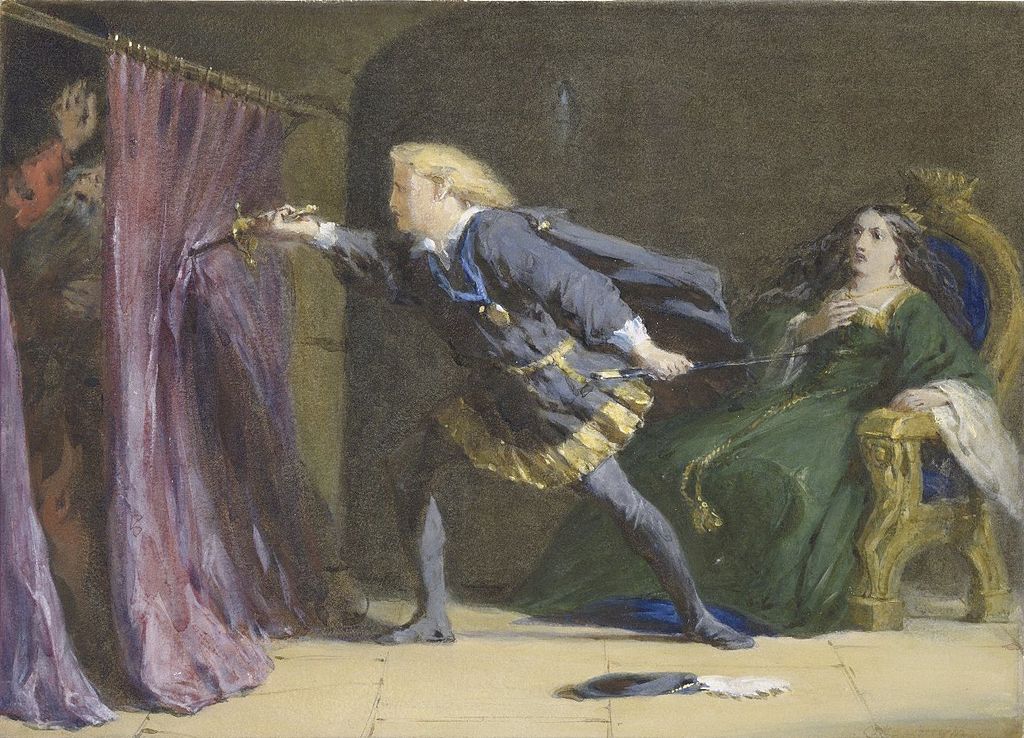
Artist: Coke Smyth, via Wikimedia Commons
Just before this, Hamlet delivers the aforementioned speech, I would describe in more modern English as follows:
🗝️ Even when a sparrow (a small bird) dies, there is a protective caring force [God] who looks and cares for its suffering.
If the time to act [specifically, to fight] is now, then we must act because the same opportunities will not come again in the future.
If we know that we cannot act in the future, then we know that now is our time to start acting.
And if the opportune (suitable, fitting) time is not now, yet it will come sometime soon, for sure.
The most important thing [‘all’] is to be in a state of readiness, always.
Here is a question for you: Do you agree with Hamlet? 🤔
…
🪶 QUOTE #10
‘The rest is silence.’
– The Tragedy of Hamlet, Prince of Denmark (5.2.312)
🍂🍂🍂
At this point, you are aware of everything.
Laertes and Hamlet accidentally kill each other with a poisoned (having poison, a substance that can cause severe illness or even death) sword. 🗡️
As Hamlet approaches death, his closing words are: ‘the rest is silence.’ 🖤
What do you believe he intended by this statement? 💭
We could interpret (read meaning into something) the word ‘rest’ to have two different meanings.
💡 The first meaning is that the word ‘rest’ could be translated as ‘the rest’ or ‘remainder’ of the story. For instance, in English, we frequently remark, ‘Well, the rest is history.’ Shakespeare might have had anything along these lines in mind when he wrote this.
💡 This word could also have another meaning at the same time. Remember that Shakespeare was a master at conveying multiple meanings with only one word! The second interpretation is ‘a rest’, ‘a chance to relax and be at peace’. Rest in this context could refer to the ‘peaceful rest of death.’ The act of dying silences everything: voices of fear, voices of doubt, words and thoughts of anger and revenge.
What interpretation do you think best fits? Do you believe that life ends when we die, or do you believe in an afterlife?
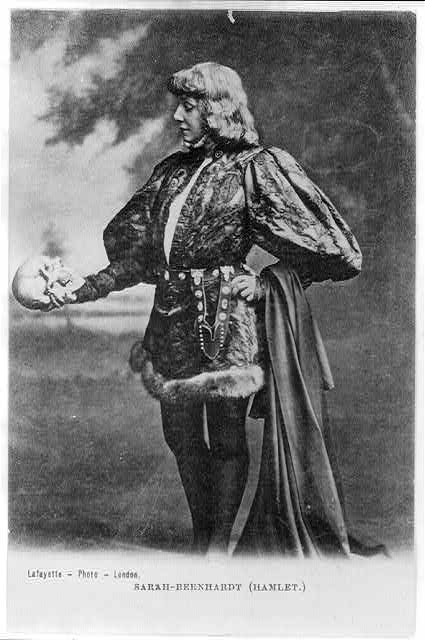
Photographer: James Lafayette
Public domain, via Wikimedia Commons
…
CONCLUDING THOUGHTS 🏆
These are only a few of the significant ideas and challenging issues that are masterfully presented in this drama.
And with that, I will conclude this lesson. Shakespeare’s works offer so much food for thought and appreciation. I sincerely hope you enjoyed it and discovered something that touched your soul.
If you have any questions about this lesson (or any other), please don’t hesitate to ask me using 🪶 my contact form 🪶. Please remember to specify the lesson number.

